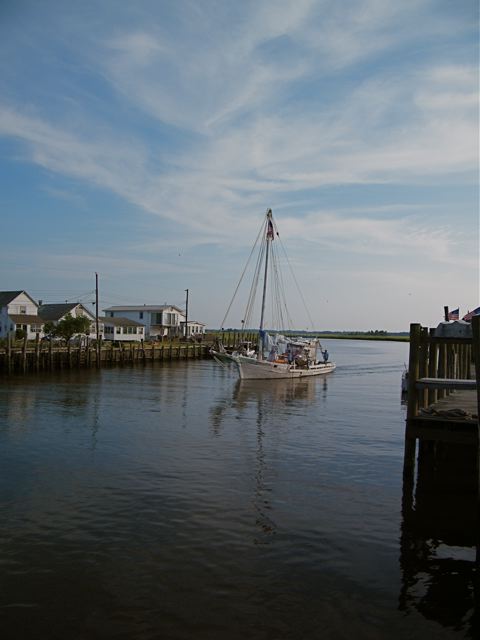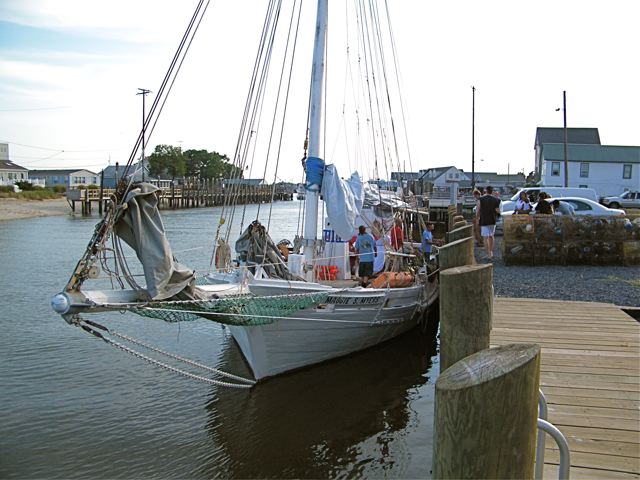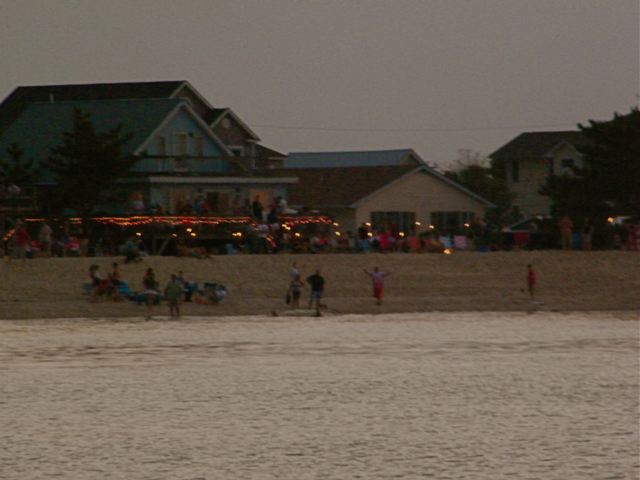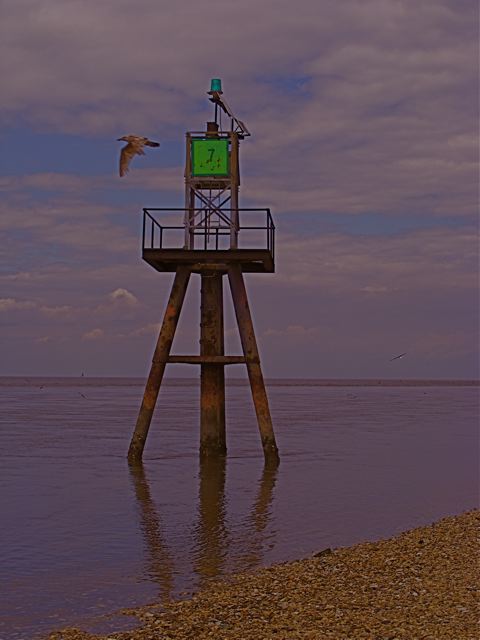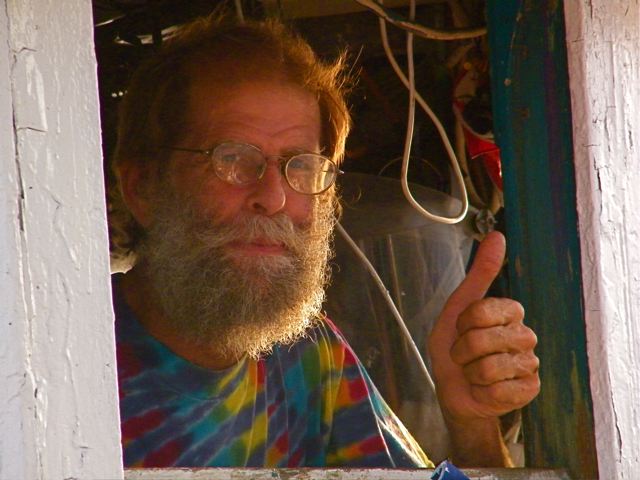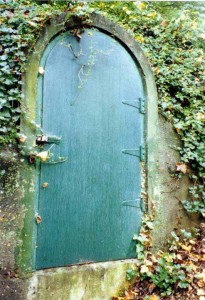
It is said this house served as a Revolutionary War infirmary and a stop on the Underground Railroad.
At least 3 ghosts live here. Look closely at the 3rd floor windows.
September 21, 2012— A friend blogger commented on my “Our Town” blog post that I should have included some pictures. Why not? She writes a humor blog, “Lame Adventures” (http://lameadventures.wordpress.com/) about her town, New York City, with lots of pictures – iPad boxes of pens left on an apartment house lobby radiator, bags in trees, pigeons on office windowsills; so I wondered why I didn’t think of posting pictures to go with my blog about my town. (You don’t have to answer why I didn’t think. Moriarty, The Phantom of My Blog, goes around mumbling under his breath about that frequently enough. But, look, he’s the one who lost the keys and locked himself out on the blog balcony during a thunderstorm, not I.)
Anyway, here I have reissued this post now with pictures, so you can see what our charming town looks like – or used to before they chopped down the trees.
September 15, 2012 — On a recent Sunday morning I started my day deadheading the roses and geraniums out front. My next-door neighbor was edging her sidewalk. The day was warm and sunny. Mike, the guy who lives up the street in the purple Victorian with the beautiful yard, walked by with his little grandson, now walking, when another neighbor, Brian, rode by hunched over on his son’s 20-inch bike.
“Hey Brian,” Mike called, “they make bigger bikes.”
All my neighbors out playing: it reminded me of junior high.
Before deciding to buy this historic home in our central Delaware small town ten years ago, Emma and I drove down from Wilmington to see it a second time. We got to the historic district and then couldn’t find the house. We pulled up to ask directions of a guy raking his lawn. He smiled, leaned on his rake, and casually spent ten minutes describing the layout of the town and providing a choice of routes to get to the house. The house, it turned out, was just around the corner.
I was drawn to the town by the historic charm of the red bricks, brackets, gargoyles and lace of the Colonials, Federals, Italianates and Queen Annes. I like to walk the historic brick sidewalks in the shade of grand old maples, walnuts, lindens and ginkos, smell the aroma of a boxwood garden behind a wrought iron fence or of sun baking well-seasoned wood on the side of an old red barn; I like to see vegetables springing up on a plot of land or flowers frolicking in a bed lining a wrap-around porch, while from porch rafters up and down the street wind chimes toll, ring, and titter in the breeze like a consortium of angels.
We had no sooner moved in and just sat down at the dinner table that early September evening when a band paraded up the street playing a John Philip Sousa march. I leaped from the dinner table and raced out onto the porch. I was nine again.
“Oh, what a nice, family-oriented town,” I thought as they paraded by. “They have a marching band play for us at dinnertime.”
Bearing flags, drums and horns, led by the drum major strutting with his baton, they were a troop of pied pipers drawing families onto their porches and sidewalks and followed by a host of helmeted kids on bikes. It turned out they are our Citizens’ Hose Company marching unit and band practicing for the annual Delaware Firemen’s Conference parade and competition held every September in our state capital, Dover. (That day is today.) The fire company has had a winning history of marching since their founding in 1886. The Citizens’ Hose Company band, founded in 1947, “have won more Governor’s Cups, for the best appearing fire company with music and 25 or more men in the line of march, than any other company in this state,” according to their website. They hold the record for the most consecutive wins – 10 in a row. They march in Dublin, Ireland and numerous cities and small towns along the East Coast. They won the Governor’s cup again this year.
After the parade, our volunteer firefighters cavalcade home commanding their amazing array of equipment – emergency vehicles and trucks, the hook and ladder, a water tanker, a vehicle for each imaginable emergency, it seems – up the highway from Dover, sirens wailing, big horns blaring. Then they celebrate all evening at the firehall with food, beer and dancing.
Sometimes bands from other countries, often Ireland, come to play and march, too.

Colonial-era building formerly housing the town newspaper. Kids set the building on fire. What they could salvage of the building has since been restored.
Well, the other night I was sitting on the front porch when, on the next street near the firehouse where the band was practicing marching, bagpipes started to play. The player was nimble fingered, too. I sat out on the porch under the guise of reading the town newspaper so I could hear the bagpipes. A new neighbor pulled up in his white and gray pickup and parked at the curb, a young guy. He rolled down the window, and instead of getting out, sat there. Coolly, I continued to read the paper, turning the pages, glancing over the top edge.
I was intrigued that this guy whom you’d expect to be listening to country or rock music or checking his text messages, sat there quietly.
I waited.
He looked over at me. “Do you hear that? What’s that? BAGPIPES?”

18th century St. Peter’s Church belfry may well house bats. Many townspeople have bats in their attics….
“Yep,” I said casually, smiling. Then I explained to him that they were practicing for the parade. “Pretty cool, huh,” I said.
“I’ve gotta go over there and see them,” he said and drove around the block.
***
There are plenty of family events year round in our town. In October there’s our autumn event celebrating our history, when kids paint pumpkins, play games and families enjoy fun festivities. In December our Main Street association has held a Holiday Candlelight Walking Tour of Historic Homes. I took the tour. In one home I settled into a warm 18th-century kitchen, engaged in camaraderie while sampling savory five-bean soup simmered in a kettle over a fire in a brick fireplace nearly big enough to convene the Continental Congress. The homeowner said, “They come back every year and the first thing they ask us is ‘Where’s the bean soup?’”
My first Christmas Eve in our town I stepped out onto our Victorian porch. The air was fresh and crisp and cold. Snowflakes began to fall, lacing the night sky and fastening to the brick sidewalks. Carolers came by in an old wagon, kindling hearts with song. Santa rode up the street in the back of a pickup, waving and calling “Me-r-r-y Christmas!” The sky wore whiskers of wood smoke curling from old chimney pots above the tall rooftops. “What a magical little town,” I thought, smiling, probably looking like an extra in the final scene of It’s a Wonderful Life.”
—Samantha Mozart

















